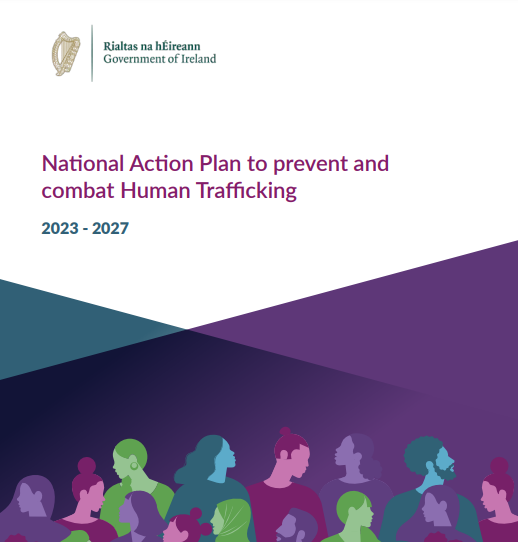On Monday 6 November, the Department of Justice launched the third National Action Plan to Combat Human Trafficking.
Human trafficking is a crime that is based on the deception and exploitation of people. It is defined as the movement or holding of persons, by means of the threat or use of force or other forms of coercion or deception, or payment to achieve the consent of a person having control over another person, for the purpose of exploitation (for the full definition, see our EMN Glossary).
The hidden nature of human trafficking means that the people affected are extremely vulnerable. Some victims may not self-identify as such and therefore the detection of trafficking is often reliant on government personnel, civil society organisations and members of the public knowing the signs of human trafficking and how to respond to them. Many instances of trafficking go unreported or undetected.
Ireland’s Third National Action Plan takes a victim centered focus and its overarching goal is to strengthen a whole-of-government approach to combatting human trafficking in the State.
Some of the key actions and priorities of the plan include the following:
Establishment of a new National Referral Mechanism (NRM).
The NRM is a framework that supports the State to identify victims of human trafficking and ensure their protection. Under the revised NRM framework, other agencies will become competent authorities for the identification of victims of human trafficking, in addition to An Garda Síochána. NGOs who have been designated as “trusted partners” will become authorised referral partners. This may make it easier for victims to be identified and access support. The expansion of competent authorities is in recognition of the fact that many victims do not trust police services.
New training framework for people who encounter potential victims.
A new training framework will be developed for people who come into contact with potential victims of trafficking. This priority aims to allow for the identification of more victims by a broader range of Government Departments and State Agencies including the Border Management Unit, health and social care professionals and HSE Registration Services. In addition, ongoing development of training through NGOs will target various front-line staff in industries such as hospitality, airline and shipping.
Establishment and development of supports and services for victims.
Various supports and services for victims of human trafficking are highlighted in the Action Plan, including establishing dedicated accommodation for those affected as previously set out in the Government’s White Paper to End Direct Provision and Establish a New International Protection Support Service. As part of a victim centered response, the plan foresees expanding the funding, use and awareness of cultural mediators and accompaniment services and reviewing the compensation avenues available to victims. In addition, the HSE Anti Human Trafficking team aims to establish an online presence for reaching vulnerable and ‘hard to reach’ victims to support increasing access to medical and social care services.
Other key actions include the following:
- Ensure effective anti-trafficking screening measures are in place at point of entry to the state.
- Provide victims with protection from deportation.
- Provide exit pathways for individuals impacted by prostitution who may be vulnerable to trafficking for sexual exploitation.
- Continue to raise awareness through materials available in languages of recognised victims of trafficking and make information available in healthcare and other settings.
- Ensure professionals in contact with children are qualified in recognising and dealing with child victims and can act in the child’s best interest.

Read the National Action Plan here
EMN Ireland has previously published a study on the policy and practice of combatting the human trafficking of third country nationals in Ireland (see below). In 2024 the EMN will carry out a research study on the international dimension of the EU policy to prevent and combat trafficking in human beings.
See more:
- Press release on the launch of the Third National Action Plan to combat human trafficking
- Detection, identification and protection of third-country national victims of human trafficking in Ireland
- Third-country national victims of trafficking in human beings: detection, identification and protection: EMN Synthesis Report

